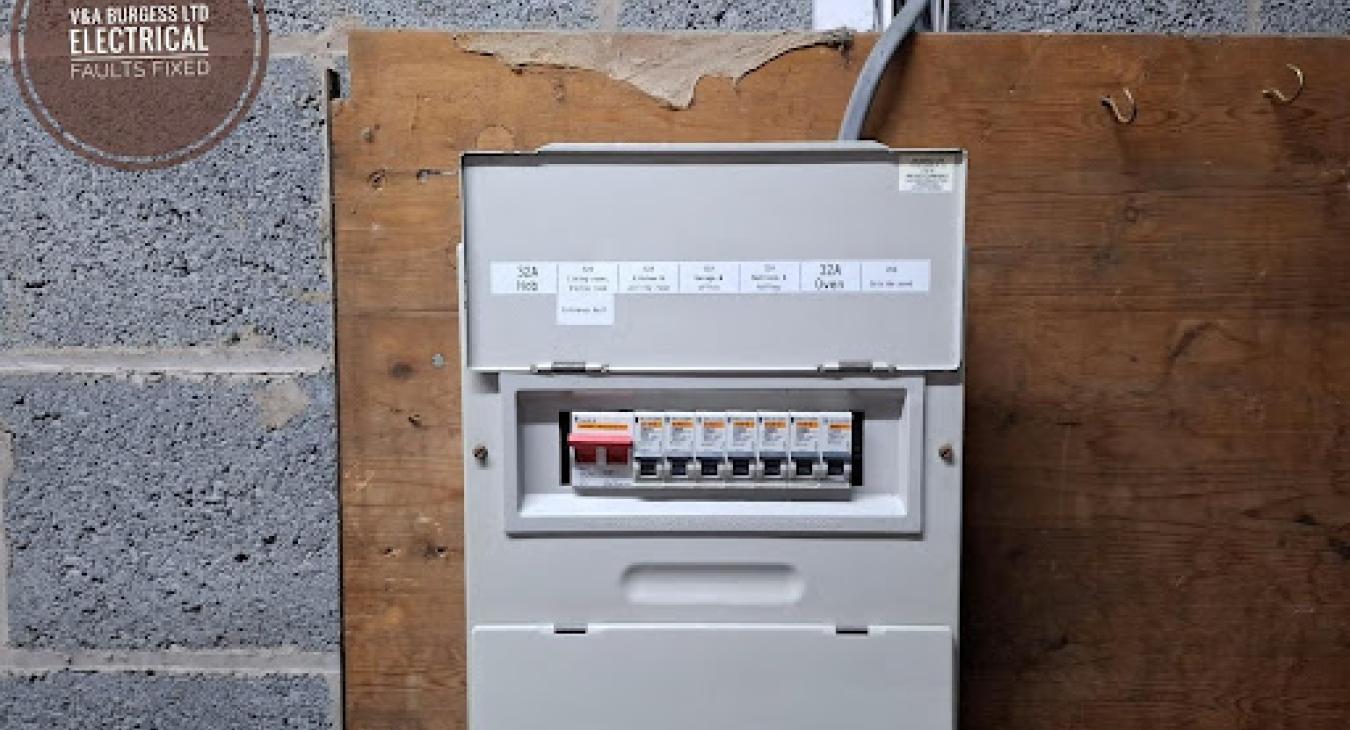My Circuit Breaker Keeps Tripping: 9 Reasons why
A circuit breaker is a small device in your electrical panel, fuse box, consumer unit or trip switch box that protects your electrical installation from overload, electrical faults and serious damage.
Índice
- If it’s going off with a BANG, it's not good!
- Bank Holiday DIY weekend mishaps
- Overloaded Circuit
- Rodent Infestation
- Water in your Electrical System
- Faulty Wiring and Older Electrical Installations
- Faulty Breakers
- Faulty appliances causing a tripped breaker
- Electrical Fire
- Ground Fault Circuit Interrupter or RCD device
- AFDD Tripping out
- Circuit Breaker Tripping at Night
- Frequent Tripping Circuit Breaker
The circuit breaker should have been carefully selected by the electrician that installed the wiring to adequately protect your electrical installation. When a circuit breaker trips, it does so to protect your wiring, appliances, and your home. The tripping circuit breaker is usually the result of an electrical fault or faulty appliance and only occasionally as a result of a faulty circuit breaker.
Below we will look at the most common causes of a circuit breaker tripping. You need to check what type of overcurrent protective device (OCPD) that you have in your electrical panel or consumer unit as not all trip switches are circuit breakers, some are RCD, RCBO or GFCI (USA).
Back to top1) If it’s going off with a BANG, it's not good!
If your circuit breaker is going off with a pop or bang sound then this is due to a large amount of electrical current flowing through the circuit which it protects. Leaving this situation to occur could result in electrical fires! The most common cause of a circuit breaker going BANG is a short circuit fault. These faults can occur for various reasons on electrical circuits and we will cover more of these below.
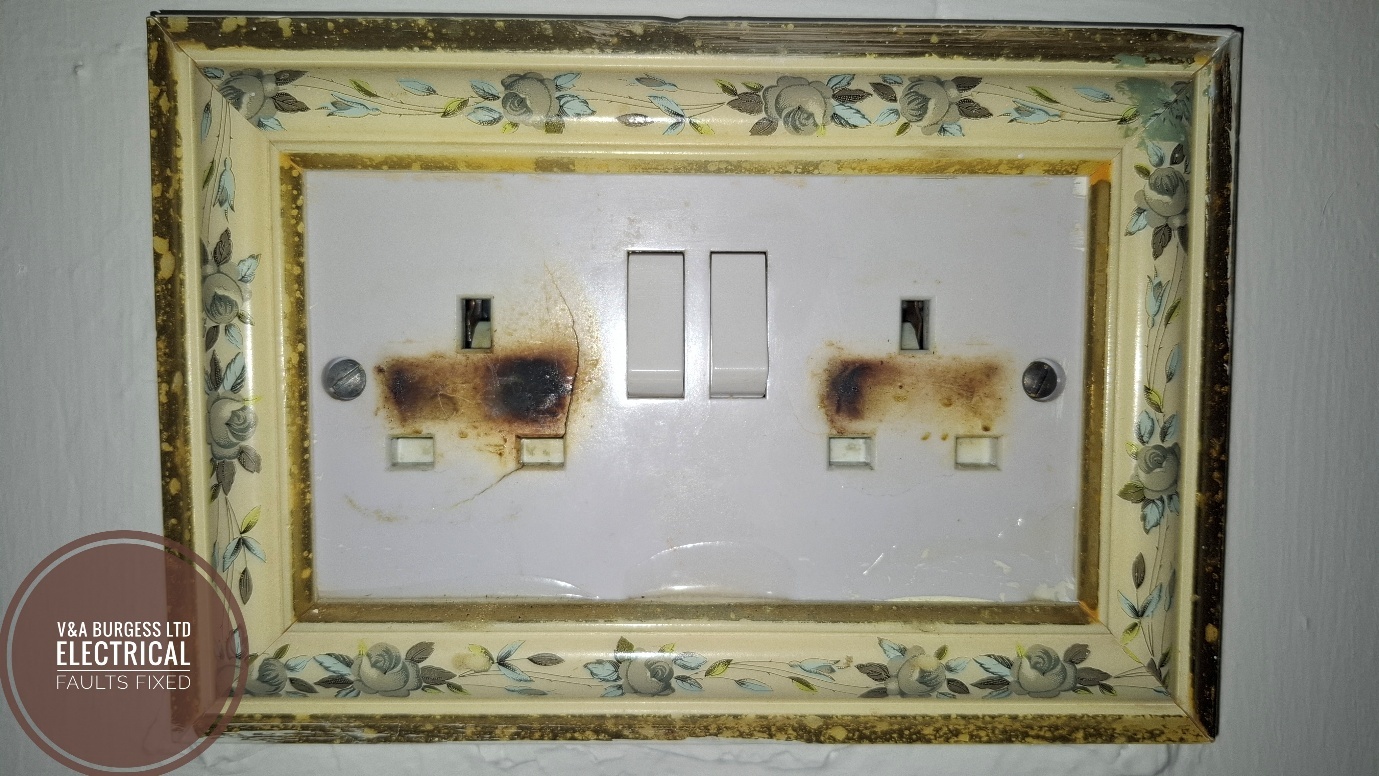
2) Bank Holiday DIY weekend mishaps
One of the most common causes of a circuit breaker tripping off is the DIY mishap. Drilling into walls where cables are hiding can result in short circuits, damaged wiring and circuit breakers that trip. A tripped circuit breaker as a result of a DIY disaster will usually come with a POP or BANG sound as it engages and breaks the flow of electricity in the circuit. Don't keep resetting the circuit breaker it’s important to have the cause investigated by a professional or try our tips at the bottom of this article.
Back to top3) Overloaded Circuit
When a circuit breaker trips because of overload, it normally goes off with a gentle click rather than a POP or BANG. If you suspect that you may have been overloading the circuit with appliances then leave the circuit breaker for a few minutes and try resetting it by pushing it back in the opposite direction to which it now faces. If the tripping circuit breaker is as a result of an electrical overload, then once you remove some of the appliances by unplugging them, the electrical load on the circuit will be reduced. This should solve the problem.
Back to top4) Rodent Infestation
Critters love to chew cables! When rodents manage to find their way into your property, they will create absolute havoc. They will chew on your wiring and cause massive amounts of damage if left unchecked. When they manage to create an earth fault or short circuit, a circuit breaker will often trip to let you know there is a serious issue with your wiring.
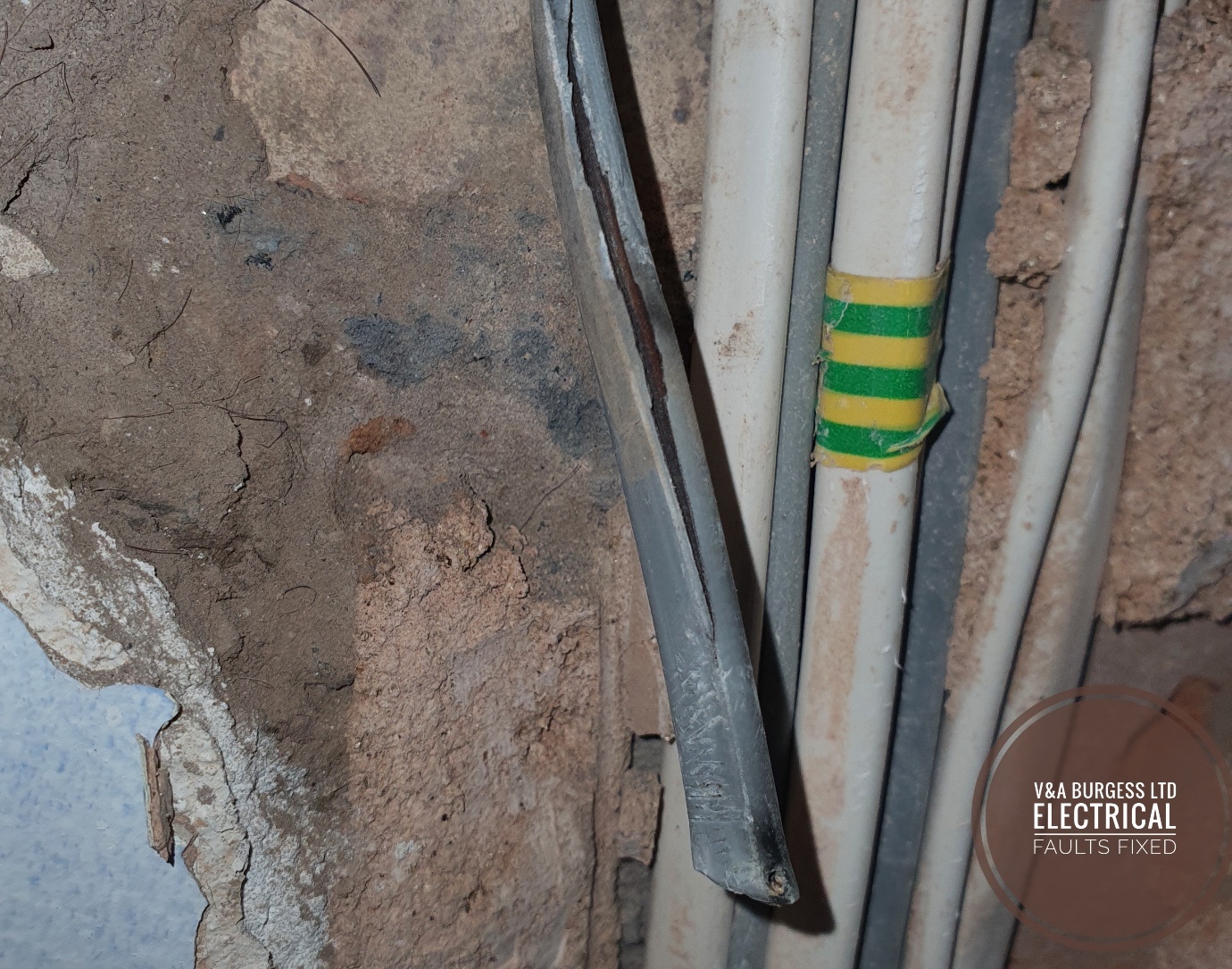
5) Water in your Electrical System
Whilst water entering your electrical system will usually trip a GFCI or RCD (UK and EU) device, there are occasions when an electric circuit may trip the circuit breaker instead. Water and electricity do not mix well together and when they do, it’s usually the Ground-Fault Circuit Interrupters (GFCI) that will trip first. In some electrical installations, such as those in older homes, you may not have a GFCI or RCD device and still be operating on the old fuse box or circuit breakers only.
If enough water gets into the right places in your home's electrical system, equipment, cabling or an electrical outlet it can cause electrical issues resulting in circuit breakers tripping.
Back to top6) Faulty Wiring and Older Electrical Installations
Sometimes the source of the electrical problems is outdated wiring, cracked cable insulation or general wear and tear. A professional electrician should be able to pin down the source of the issue and carry out some repairs but this may not be a long-term solution. Older wiring systems are more prone to breakdown and failure and occasionally it may be necessary to rewire your property.
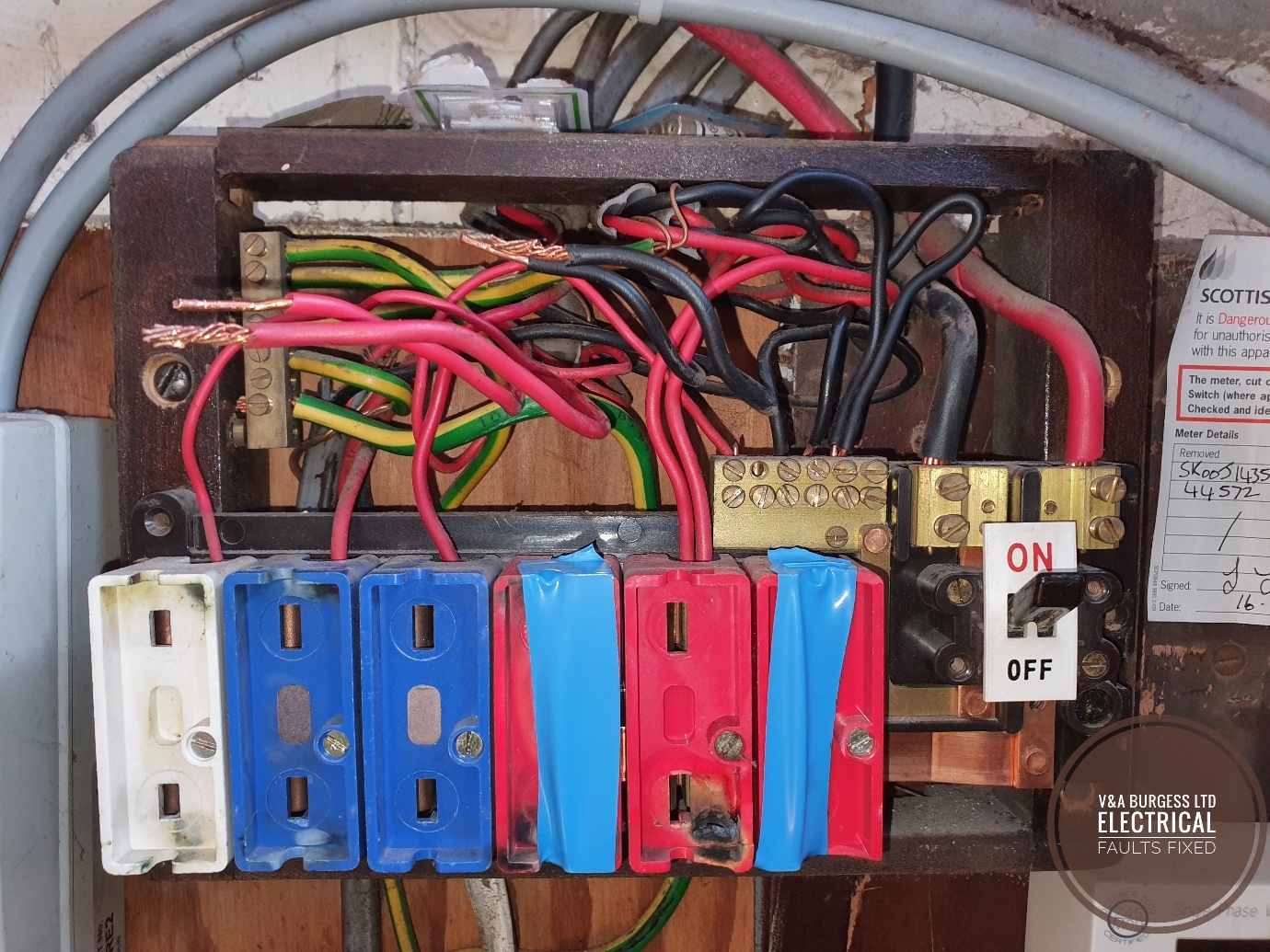
7) Faulty Breakers
Circuit breakers do occasionally go bad. This is especially common where a single circuit is continually loaded heavily or overloaded. There is sometimes a burning smell accompanying the tripping circuit breaker in the breaker box when regular overload takes place. Circuit breakers, just like our wiring, are not designed to last forever and will eventually fail. If your breakers, consumer unit, electrical panel or fuse box is 30 years old or more, then it should be replaced by a qualified electrician. Remember that a full system test is sensible before considering major electrical repairs to determine if there are any other faults present. New consumer units and electrical panels have many a modern safety feature meaning that they can detect electrical issues previously ignored by older equipment.
Back to top8) Faulty appliances causing a tripped breaker
One of the most common causes of a tripped breaker is the faulty appliance. I can't tell you the number of times I have attended properties to find that, despite my best efforts to help on the phone, the customer has failed to disconnect all their appliances from the socket outlets. Before calling an emergency electrician near you, remember to disconnect all your high-power appliances, table lamps, computer equipment, extension cords, and everything else. This piece of advice could save you money if you can narrow down the cause of the issues yourself to an appliance.
Back to top9) Electrical Fire
When cabling becomes damaged enough to catch alight, a circuit breaker will trip in many circumstances. Hopefully, your electrical panel or consumer unit is more modern and contains RCBOs, RCD, GFCI, AFDD or other updated trip switches and will disconnect the electrical fault BEFORE this happens. Your home's wiring is only as good as the BRAINS of the installation and without up to date protection at the mains, your electrical appliances, wiring, and electrical accessories are at risk.
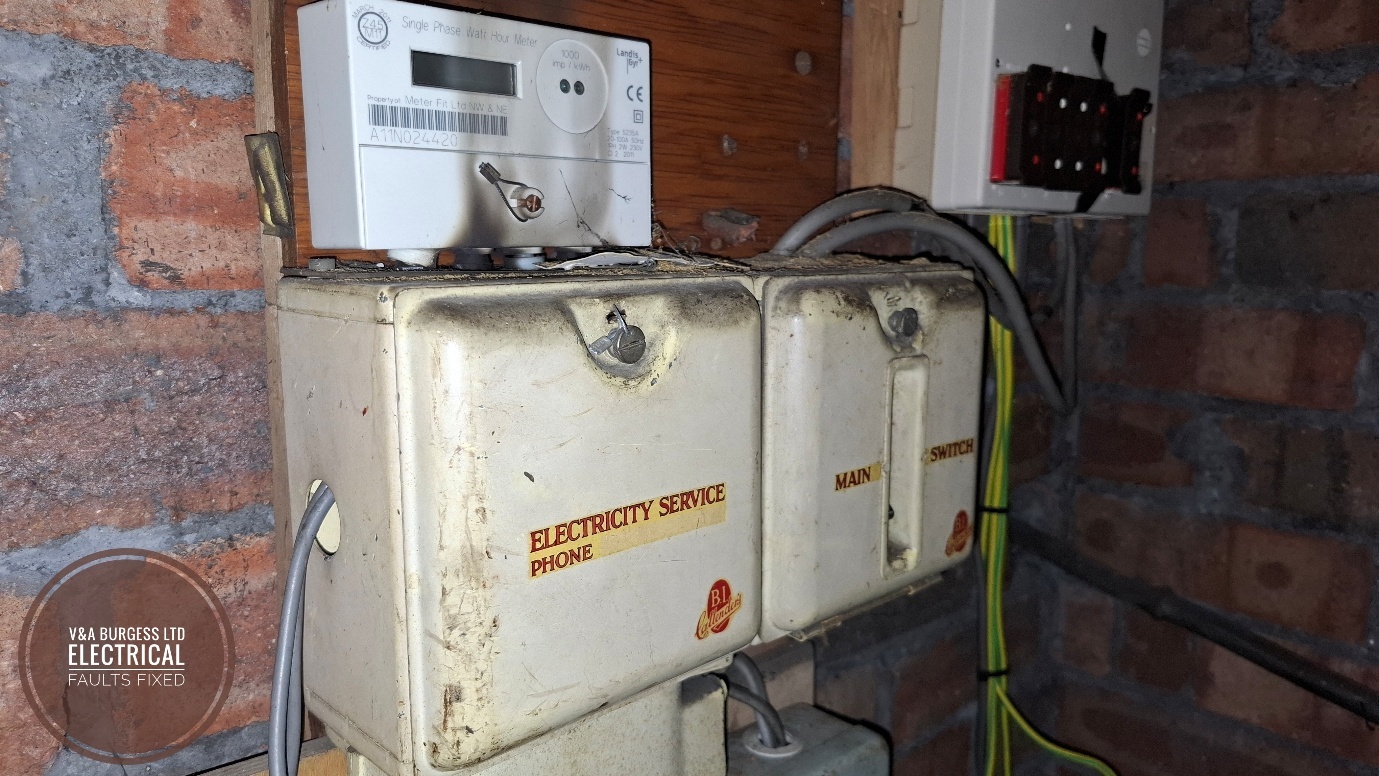
10) Ground Fault Circuit Interrupter or RCD device
A Ground Fault Circuit Interrupter or RCD is a device that protects against, primarily, electric shocks. In reality, these devices are often the best way of preventing other electrical issues from becoming more serious. These devices measure the electric current flow in a circuit and will disconnect if any electrical current goes missing, such as would be the case during a short circuit, ground (or earth) fault and during an electric shock situation. They are much more sensitive than fuses or circuit breakers and will protect your electrical system and the users of the system much better than older protective devices.
Back to top11) AFDD Tripping out
An Arc Fault Detection Device combines the capabilities of the circuit breaker, RCD (or GFCI) and also offers Arc Fault protection. When these devices trip and cause a power outage to that circuit, there could be a whole host of reasons why.
- Loose Connections
- Circuit Overload
- Loose Wires
- Damp Locations
- Appliance Damage
And MUCH MORE. If you can safely disconnect all the electrical equipment on the affected circuit then that is the best place to start. If the device continues to trip, it’s best to consult a professional electrician to attend to trace the issue.
Back to top12) Circuit Breaker Tripping at Night
Whenever a breaker trips at night, it’s quite common for that particular circuit to contain a security light, timer, or other temporary operating electrical equipment. Try and establish if you have a security light that only activates when it becomes dark, a timer for heating or hot water or perhaps another electrical appliances that could be causing the issue.
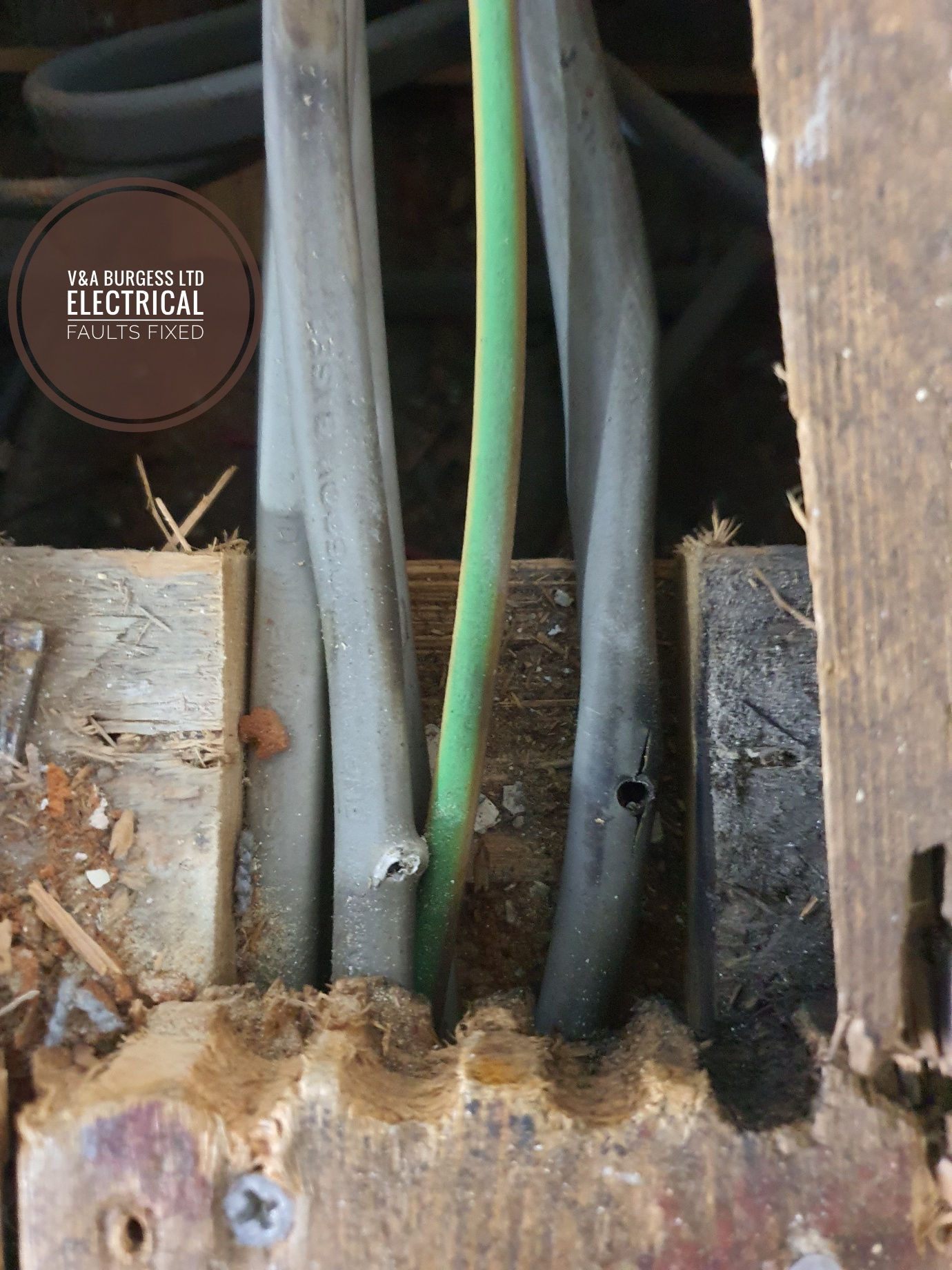
The issue, of course, may not be an appliance at all! I have had a couple of customers that report a circuit breaker tripping when they head to bed in the evening. My first port of call was to lift the carpet on the landing area and floorboards to find that several nails had been driven into several cables!!!!
Back to top13) Frequent Tripping Circuit Breaker
When a circuit breaker trips intermittently, it can be a headache for an electrician to pin down the true cause of the tripping. We need a circuit that is in bad shape for us to locate the issue on our test equipment, without a frequently tripping breaker it can be almost impossible to determine the cause of tripping with your home's circuit breakers. If you find that you do have a frequent tripping circuit breaker then that is the best time to ask an electrician to test the circuit for you.
There can be a multitude of causes for a tripping circuit breaker but rest assured, it is tripping to ensure your electrical safety. Constantly resetting a circuit breaker is likely to lead to further damage, increase the risk of electrical shock and may mean more expensive repairs than would otherwise have been necessary. Call an electrician to trace and fault find your electrical issues and once any repairs have been completed, consider a full electrical inspection for your peace of mind.
Back to top
